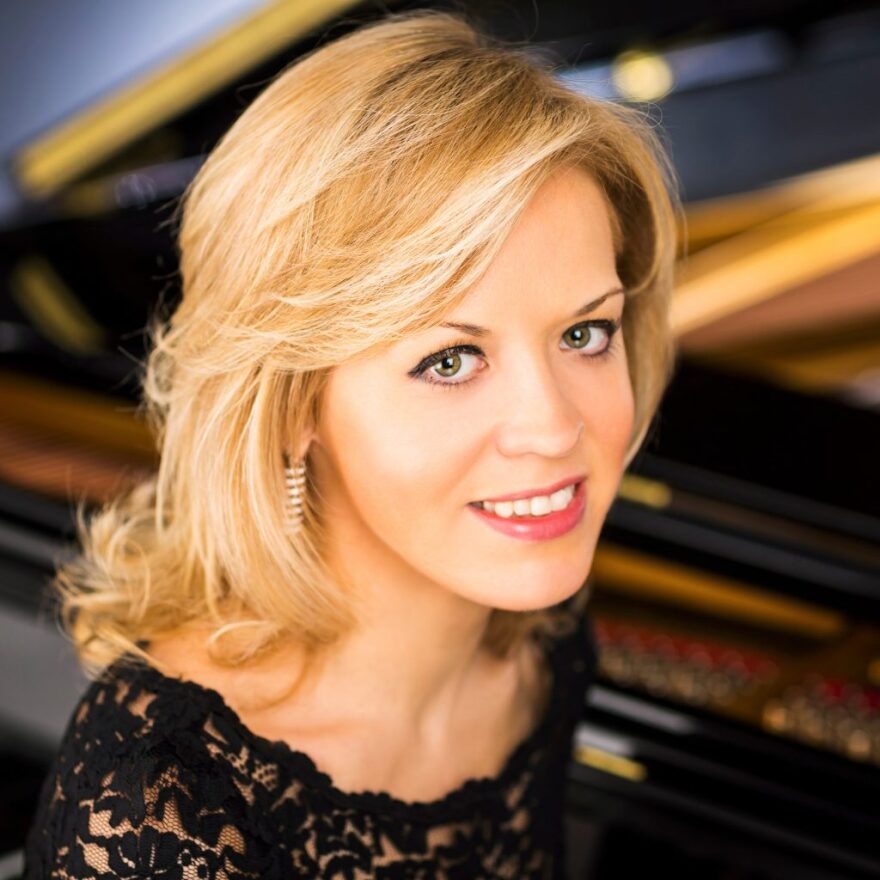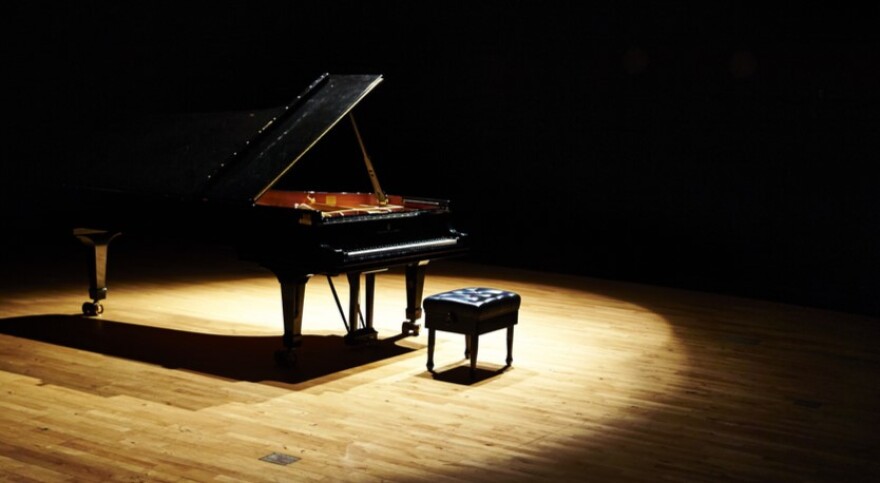Who could imagine that lives might be at stake — for something said half-a-world away at a piano contest?
Twenty-eight-year-old Dmytro Choni auditioned Tuesday for the Cliburn competition. Choni is the only Ukrainian pianist among the 72 candidates vying to be picked for the June contest.

How can a musician concentrate on his qualifying performance in a high-stress competition -- while war rages in his homeland?
"Well, I'm working on it," he said. "It's not easy at all. Um, of course, I'm thinking of my parents, of my family who are still in Ukraine. But … well, I dunno. I tried to, to focus on my performance -- today."
Fifteen Russian-born pianists were also admitted to the auditions this year. Around the world, Russian performers and athletes have been banned or had contracts cancelled.
But the Cliburn didn't turn these young Russians away. That decision has prompted a major response in classical music circles, inspiring other organizations and competitions to follow suit. They're are saying, we are not political organizations. Banning an individual artist for what his or her country has done is akin to banning them for reasons of gender or race.
Jacques Marquis is CEO of the Cliburn. Marquis decided to admit the young Russians and decided to discourage them from talking to the media.
"From the start," he said, "you have to think of these artists of being independent. They're not competing over the Russian flag and not competing over the Canadian flag. They're competing as themself."
The Russian pianists are not the national Olympic team. They haven't been promoted as patriotic symbols of Mother Russia. And they aren't international stars who've publicly allied themselves with Vladimir Putin. Some of those have had their careers derailed when they wouldn't denounce him.
Several of the Russians in Fort Worth no longer live in their homeland. But even they haven't escaped repercussions from the war.
Alexander Kobrin sees them as caught in a geopolitical Catch-22. Kobrin won the gold at the 2005 Cliburn and has had a stellar concert career. The Russian pianist is back in Fort Worth to help judge this year's contestants.

If the young musicians defend Putin's actions, they jeopardize any future career. But Kobrin said, if they speak out against Putin, they jeopardize their families in Russia. Or even themselves.
"It's not like they're ashamed of saying something People here have to understand. People are getting arrested for simply saying, 'We don't want a war' — not saying 'We hate Putin' but just simply 'No war.' And I cannot blame them to be afraid. Because we're not in a situation where you say something, get penalized and continue with your life.
No, no, there will be no life."
Complicating people's loyalties and fears, many Russians and Ukranians are tied by long and close family connections. Russian pianist Olga Kern won the Cliburn in 2001. She publicly denounced the war this week -- and noted her grandfather was Ukrainian.
For Kobrin, it's closer than that. His father's family came from Ukraine.
"I am Polish, Ukrainian, Jewish, was born in Russian soil," he said.
Kobrin feels he can speak freely now because he's an American citizen. Even so, Kobrin says the Russian contestants must be fearful about their families back home -- because he's fearful about his.

"I'm worried about my parents, who live in Moscow, right now. And you know I was basically their only financial help. And with sanctions and everything -- everything, everything is a disaster right now."
Dmtryo Choni, the Ukranian contestant, has darker fears. He currently lives in Austria. But Kyiv is his hometown. It's where his family lives.
And he's watched it getting pummeled by the Russians.
Choni's been communicating with his family. They don't want to leave the country, but a few days ago, they fled Kyiv. Like thousands of others, they've sought refuge in a safer location in western Ukraine.
In Fort Worth, trying to concentrate on an intense, public piano performance in the midst of all this dread and danger seems futile. But Choni says, music can actually provide a solace.
Or what he calls "a hideaway from the world."
"I don't know if the word is correct. But through the music you can try to project the best possible emotion, the optimisms, the hope -- well, this is something you can do for people.
And for yourself."
Thirty of the 72 candidates this week will eventually be chosen for the Cliburn competition in June. If Choni or any of the Russian candidates qualify for those slots — they may be back.
KERA's Bill Zeeble contributed to this report.
Got a tip? Email Jerome Weeks at jweeks@kera.org. You can follow him on Twitter @dazeandweex.
Art&Seek is made possible through the generosity of our members. If you find this reporting valuable, consider making a tax-deductible gift today. Thank you.



